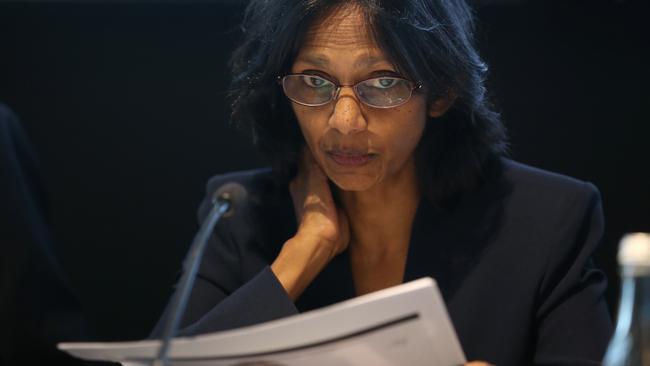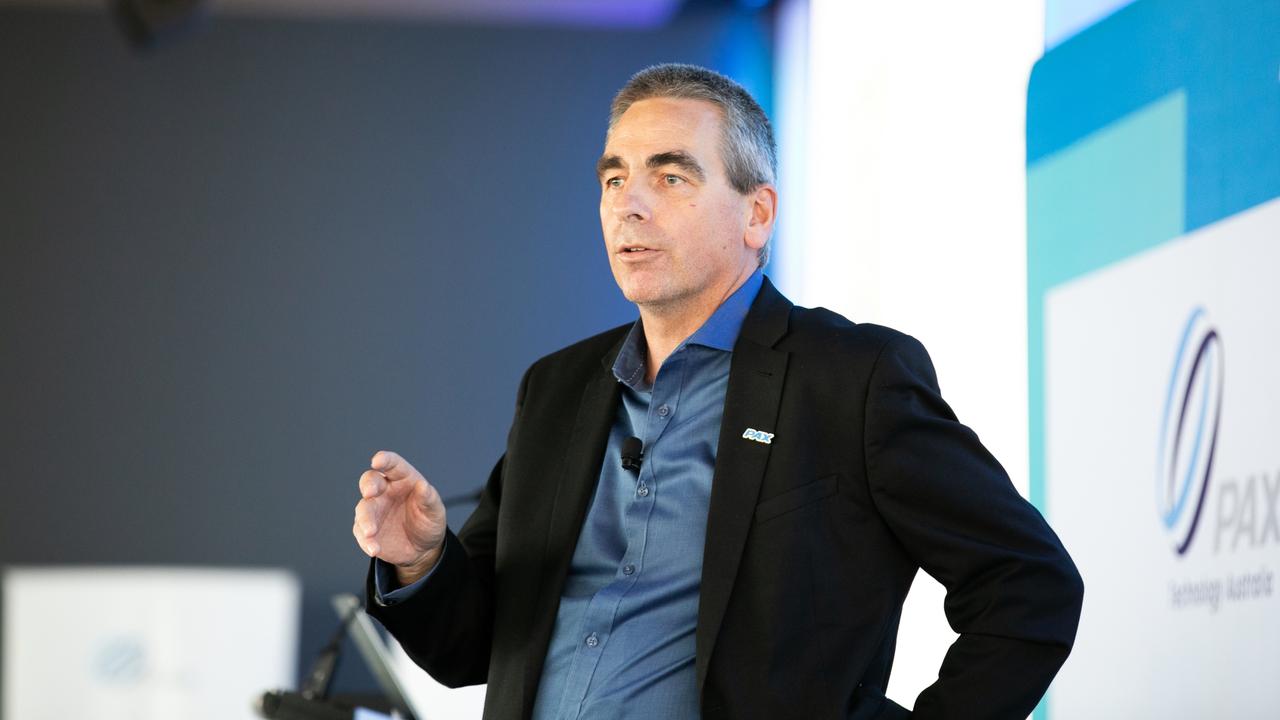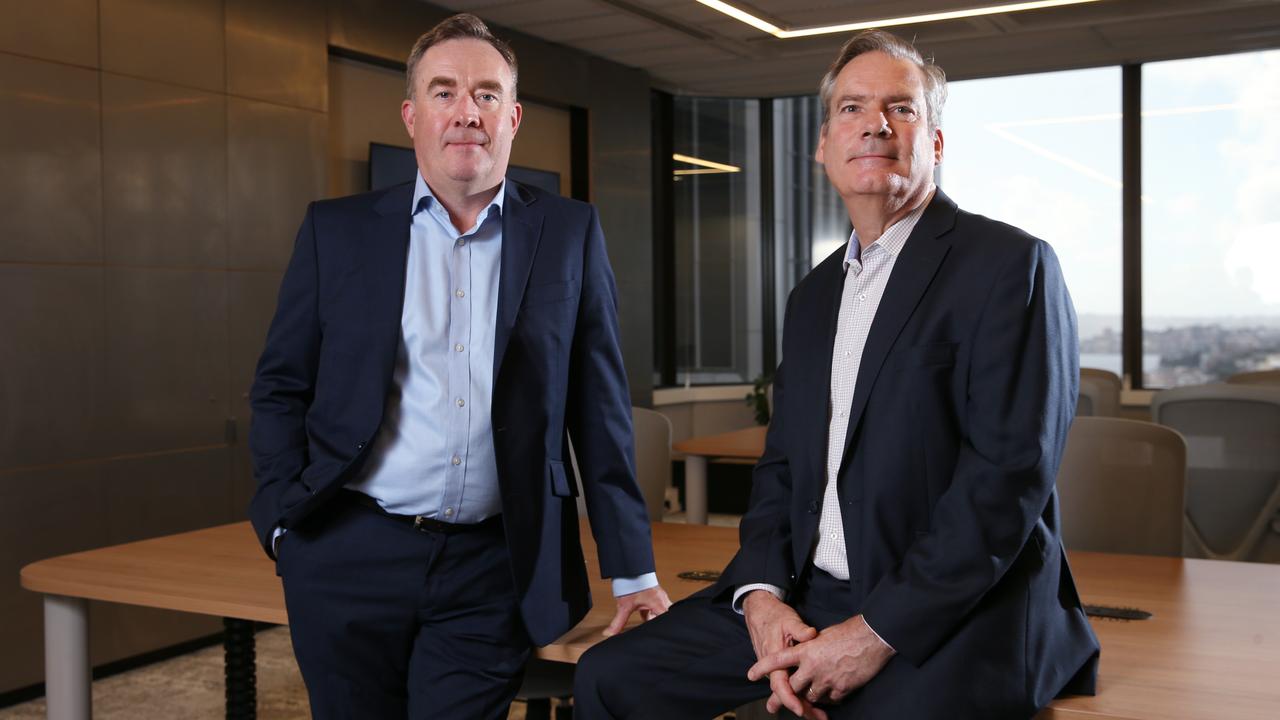Macquarie Group says full year profit will be ‘slightly down’
Macquarie says while it remains well-positioned for the medium term, full year profit is expected to dip.

Macquarie Group is working on a spate of green projects, including aircraft that are carbon-neutral on delivery, as it seeks to further capitalise on a shift toward renewable energy and heightened awareness about carbon emission reduction.
The projects, which reflect where Macquarie sees new areas of growth in its commodities and global markets division, were highlighted at an annual operational briefing on Tuesday.
One project involves capturing carbon in the production of barrels of crude oil and storing it elsewhere, and Macquarie is talking to ride-sharing companies about a carbon offset option when commuters use the service.
The aircraft project would lead to planes being carbon-neutral on delivery, due to the materials used and the way they are built.
The briefing also identified the emergence of hydrogen energy, carbon-neutral food products and financing refinery upgrades as potential growth areas for the asset management and investment banking giant.
The insights into how Macquarie is viewing the energy sector came as chief executive Shemara Wikramanayake said the group had had a satisfactory December quarter and reiterated that annual profit would print “slightly down” on 2019’s $2.98bn record.
Macquarie’s shares declined almost 0.6 per cent on Tuesday to close at $145.53, as the group didn’t follow its post-global financial crisis pattern of upgrading earnings guidance through the year.
Cadence Capital managing director Karl Siegling said buying the British government’s Green Bank in 2017 was a “massive step” for Macquarie in scaling up in renewable energy, which was paying off.
“It is front and centre now,” he added.
“In infrastructure they’d have to be amongst the smartest people in the world.”
But Mr Siegling warned that as Macquarie continued to grow rapidly, delivering 10-15 per cent profit growth annually was much more challenging.
“They are chunky numbers. It just gets more difficult,” he said.
Jefferies banking analyst Brian Johnson sees Macquarie heavily capitalising on the commercial opportunities around climate change and a shift to renewable energy.
“Macquarie are the way to play climate change, because there will be money to be made,” Mr Johnson said.
“It is not necessarily a green play — they can see an opportunity to make money out of it.”
Macquarie head of commodities and global markets Nicholas O’Kane told investors the group was seeing opportunities as the energy market evolved and was also open to acquisitions in the sector if they fitted the strategy. “We are constantly reviewing potential acquisition opportunities,“ he said, noting that 65 per cent of the commodities and global markets portfolio represented recurring income.
That division is one of Macquarie’s largest, alongside its asset management unit, which houses a stable of infrastructure funds and managed $587.5bn as at December 31.
Macquarie rules off its financial year on March 31.
Ms Wikramanayake said the record 2019 profit was underpinned by bumper performance fees after large assets including Quadrant Energy and online property settlement group PEXA were sold.
She pointed out the selldown by Macquarie in Taiwanese wind assets and smaller divestments in its third quarter, but suggested there would not be large sales in the final months of its financial year.
“We don’t expect in the fourth quarter that there’s a material amount (of asset divestments) to do,” Ms Wikramanayake said.
In October, Macquarie and its partners sold a stake in Hobart Airport.
Earlier in 2019 its infrastructure arm sold a holding in Brussels Airport.
Ms Wikramanayake also said Macquarie undertook rigorous stress testing of its investment portfolio, including running scenarios for epidemics and large liquidity or funding risks. Macquarie’s capital surplus stood at $5.8bn at December 31.
While not changing earnings guidance, Ms Wikramanayake told investors the group had growth avenues ahead and $21.1bn of dry powder to deploy in its asset management division.
She also identified an ongoing cost saving and efficiency program.
Macquarie’s update showed the combined profit contribution of its asset management and banking and financial services unit were higher in the December quarter compared to a year earlier.
But profit contribution from the commodities and global markets division and advisory arm Macquarie Capital were “significantly down” on its 2019 third quarter, given the performance fees booked in that year.




To join the conversation, please log in. Don't have an account? Register
Join the conversation, you are commenting as Logout